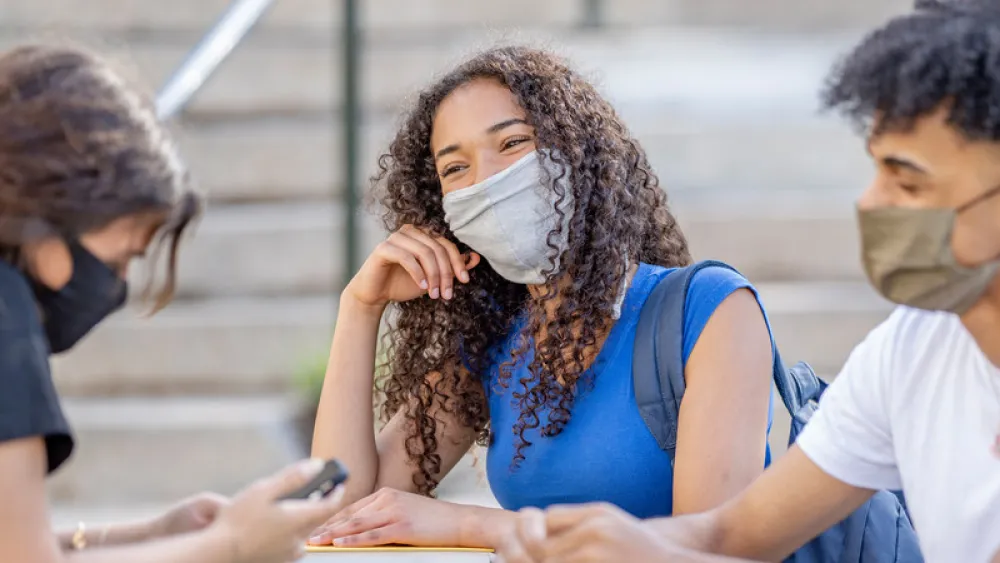Mental Health
Flying the Coop in a Pandemic ... or Not
Published: Aug. 7, 2020

Uncertainty on Campus
Sending your child off to college comes with a mixed bag of emotions. You’re so excited to see them growing up and becoming their own person. You’re also sad. Add the COVID-19 pandemic – what do those feelings look like now?
Even without the pandemic, you would have been worried about your child encountering situations where you have no control. Parents are going to worry about their children no matter what is going on in the world. While not comforting, your children face a great deal of risks at college besides COVID-19. It all boils down to how responsible each child chooses to be. As parents, you have to trust them to freely make choices using the tools you gave them to help them be responsible.
You can help your children prepare for college and address fear and uncertainty by:
- Encouraging them to voice their concerns.
- Walking through the worst-case scenario. This may help you see that even that scenario is manageable.
- Talking through what you might do if your child gets sick, if you get sick, if their college sends them home, etc.
- Helping them remember times in their lives when they faced uncertainty before and how they dealt with it. They navigated uncertainty before, and they can do it again.
- Reminding them of the support they have in their lives, even if they’ll be far away.
You and your child should focus on what you know to be certain. Only focusing on uncertainties can feel like walking through a huge vat of gelatin. Every step you take is difficult, and you don’t know if you’re going to fall. By looking to what you know to be true in your life, you can step out of the vat and onto a solid surface. Focus on what you can control. Your child can’t predict if they’ll contract COVID-19, but they can make choices to protect themselves and stay as healthy as possible.
 Not-So-Empty Nesters
Not-So-Empty Nesters
Maybe you were expecting an empty nest come fall, and now it’s not so empty. Many colleges across the country have instituted remote learning for the fall semester, and some students have chosen to delay their college plans until after the pandemic has passed. Those same young adults who may have been looking forward to being away from home now aren’t going anywhere. You and your child will need to practice understanding and patience.
Your child’s independence may not come as quickly as they originally hoped, so it’s important for you to learn to allow more flexibility, no matter how hard that might be. A conversation about expectations is essential. Your child will need to understand that they won’t be able to do everything they were anticipating with their independence, and you will need be willing to listen to them and consider them as the adult they’re becoming. The goal is developing mutual respect. There will be times of discord, but this is also time you wouldn’t have had together otherwise – make it as good as possible.
Problems you had before will still be problems now. And you’ll encounter new problems as parent and child – including conflict surrounding your child asserting their independence. How conflicts have been handled in the past will largely impact how those conflicts are handled now.
A reminder that we’re in an unprecedented time. Your child may be sad and disappointed to be at home. They also might be relieved. It goes a long way if you can talk through your feelings in a nonjudgmental way. But if communication becomes harder, a counselor may be able to help your family find new ways of communicating and resolving conflict – especially for older problems that keep repeating.
Consider Each Other
The pandemic has changed so much of our society so rapidly, and falling into conflict is easy. Stick together. You and your child must avoid focusing only on yourselves and take into consideration how your actions affect each other. It could mean the difference between an ugly disagreement and a mildly unpleasant conversation. That’s good advice for after the pandemic, too. This next stage of your child’s life looks nothing like they dreamed it would, and you both need each other’s support and understanding as you get through this together.
More Resources
- Get advice on navigating back-to-school with your kids during COVID-19.
- Read 10 common masking myths.
- Learn why college students should see the doctor more.


